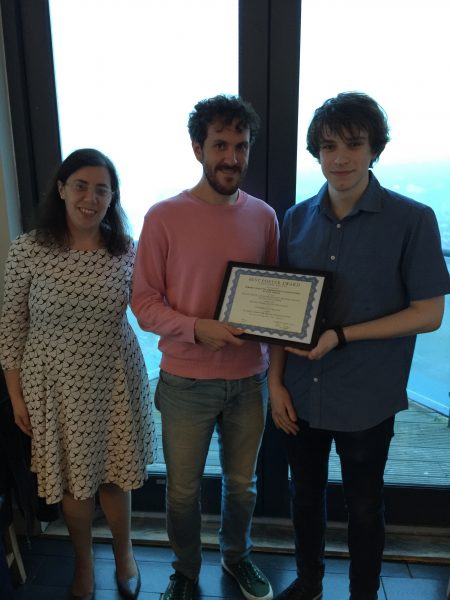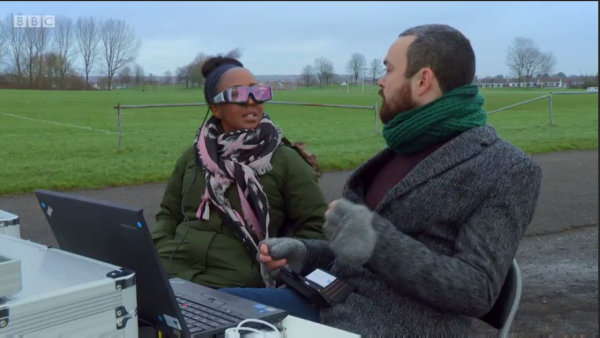A new £1.4 million research project led by the University of Bristol will use engineering and science in the design of radically new approaches and solutions to vision-based technology.
Researchers from the University’s Bristol Vision Institute (BVI) have been awarded an Engineering and Physical Sciences Research Council (EPSRC) Platform Grant for their project ‘Vision for the future’.
The grant will focus on deve
loping a better understanding of the visual mechanisms and processes evolved in humans and other animals, and relating these to similar technology challenges.
Vision is central to the way animals interact with the world. A deeper understanding of the fundamental aspects of perception and visual processing in humans and animals, across the areas of immersion, movement and visual search, together with innovation in engineering solutions, is essential in delivering future consumer technology for internet, robotic and environmental monitoring applications.
The project will carry out research across three themes:
- Visual immersion – investigating, developing and characterising future consumer and professional video formats that will enable increased viewer engagement with the content;
- Finding and hiding things – understanding visual search processes and translating these into machine solutions for detecting, hiding, classifying, describing and making decisions about complex visual information;
- Vision in motion – a better understanding of how motion facilitates scene understanding will inform the design of autonomous systems, provide new healthcare solutions and underpin new camera technologies.
Professor David Bull, Director of Bristol Vision Institute, who is leading the project, said: “This is a major award for the University and BVI. It will enable us to take a strategic and long-term view of our research, addressing grand challenges in vision science and its applications. The interdisciplinary landscape of BVI will allow us to meet these challenges and to translate biological and psychological discoveries into technology solutions for human and machine applications.”
The BVI researchers on the project include: Professor David Bull, J F Burn, Professor Nishan Canagarajah, Professor Innes Cuthill, Professor Iain Gilchrist, Dr Casimir Ludwig and Dr Nicholas Roberts.
Alongside support from the University of Bristol the project has international collaboration with world-leading organisations including: the Academy of Motion Picture Arts and Sciences,Max Planck Institute (Tuebingen), camera manufacturer ARRI, BBC R&D, Aardman Animations,QinetiQ and Thales, together with the universities of Rochester, Lund, Texas at Austin, UWA,Purdue and UWE.
Further information
EPSRC’s Platform Grant Scheme is focused on “providing flexible support that underpins adventurous research in world-leading research groups”.
About the EPSRC
The Engineering and Physical Sciences Research Council (EPSRC) is the UK’s main agency for funding research in engineering and physical sciences. EPSRC invests around £800m a year in research and postgraduate training to help the nation handle the next generation of technological change. The areas covered range from information technology to structural engineering, and mathematics to materials science. This research forms the basis for future economic development in the UK and improvements for everyone’s health, lifestyle and culture. EPSRC works alongside other Research Councils with responsibility for other areas of research. The Research Councils work collectively on issues of common concern via Research Councils UK.
About Bristol Vision Institute
The University of Bristol is a world leader in vision-research, spanning human and animal vision, artificial vision, visual information processing and the creative arts. Bristol Vision Institute (BVI), formed in 2008 with some 120 researchers, has successfully created an intellectual landscape alongside practical facilities for vision research and has facilitated engineers and scientists working together with experts in medicine and the arts. It is the largest inter-disciplinary grouping of its type in Europe, and is unique worldwide. BVI has been highly successful in attracting research income and stimulating new relationships with an impressive list of collaborators.



 es in their pockets when on the road.
es in their pockets when on the road.